With the generous permission of SoM, I opened the following thread which has to be filled with a plenty of materials that debunks nationalist Greek propaganda.
Introduction
Unlike Macedonia, Epirus has not attracted much of scholarly attention. The XIX-th and XX-century scholars unanimously recognized Epirus as non-Greek, while its population as being similar with that of Illyria. The prevalent opinion among ancients is that Epirus wasn't part of Greece, while its population is barely considered as Greek. In 1844 when the expansionist project called 'Megali Idea' was launched for the first time, Greek nationalists upheld weird claims about the supposed Greekness of Epirus. Thus, Epirus was thought by them as a Greek land, whereas its people as genuine Greeks, something that was never suggested by ancient testimonies. A number of nationalist Greek pages are ranting for a Greek identity of Epirotes. Here we are going to list some of their falsified stories. For the sake of simplicity, we have chosen an example of brainwashed propagandists that cherish all the virtues of a manipulator. His nickname is 'Agamoi Thytai' (a.k.a Kapetan Doukas in "MOTW").
His fragile claim:
For the sake of clarity, ancient authors never use to ascribe a Greek identity to all Epirotes in general. Indeed, ancient Greek authors tried to portray only the ruling elite of Epirotes as being Greek. But even this mythic claim was challenged by Greeks themselves. To them Epirus was a strange land lying out of the Greek world. Whereas its inhabitants were viewed as 'barbarians' (they judged their language as completely unintelligible); which was applied even to Illyrians, Thracians, Macedonians, Etruscans, etc.
The ancient writers unequivocally described Epirotes as barbarians; in all probability, this term is not meant to show Epirotes as backward Greeks as many modern Greeks claim. Judging by their language, customs, traditions and the way of life (which differed completely from that of Greece proper), ancients reckoned them to be 'barbarians':
Strabo, Geography, 7. 7. 1
Moreover, the barbarian origin of some is indicated by their names—Cecrops, Godrus, Aïclus, Cothus, Drymas, and Crinacus. And even to the present day the Thracians, Illyrians, and Epeirotes live on the flanks of the Greeks (though this was still more the case formerly than now); indeed most of the country that at the present time is indisputably Greece is held by the barbarians—Macedonia and certain parts of Thessaly by the Thracians, and the parts above Acarnania and Aetolia by the Thesproti, the Cassopaei, the Amphilochi, the Molossi, and the Athamanes—Epeirotic tribes.
καὶ ἀπὸ τῶν ὀνομάτων δὲ ἐνίων τὸ βάρβαρον ἐμφαίνεται, Κέκροψ καὶ Κόδρος καὶ Ἄικλος καὶ Κόθος καὶ Δρύμας καὶ Κρίνακος. οἱ δὲ Θρᾷκες καὶ Ἰλλυριοὶ καὶ Ἠπειρῶται καὶ μέχρι νῦν ἐν πλευραῖς εἰσιν· ἔτι μέντοι μᾶλλον πρότερον ἢ νῦν, ὅπου γε καὶ τῆς ἐν τῷ παρόντι Ἑλλάδος ἀναντιλέκτως οὔσης τὴν πολλὴν οἱ βάρβαροι ἔχουσι, Μακεδονίαν μὲν Θρᾷκες καί τινα μέρη τῆς Θετταλίας, Ἀκαρνανίας δὲ καὶ Αἰτωλίας τὰ ἄνω Θεσπρωτοὶ καὶ Κασσωπαῖοι καὶ Ἀμφίλοχοι καὶ Μολοττοὶ καὶ Ἀθαμᾶνες, Ἠπειρωτικὰ ἔθνη.
So, the claim of Greek nationalists that 'barbarian' meant a backward Greek is unsustainable. Here I'm going to present some modern interpretations that support our view.
Michael Grant, Rachel Kitzinger, Civilization of the ancient Mediterranean: Greece and Rome: Volume 1, 1988, p. 203:
"On the other hand, Thucydides (1.47.3, 5o-3) and Strabo (7.7.1) call the Epirotes barbaroi: only two of Thucydides' (2.80) northern chieftains have Greek names and many Epirote tribes did not speak Greek (Strabo 7.7.1) and even enjoyed...
All these specific characteristics were shared by the Illyrians as well. This gives at least theoretically some room for connecting Epirotes with them in terms of ethnicity.
According to an earlier source (Theopompus) in Epirus lived fourteen tribes. Of course he did not define the ethnicity of them but the later sources does distinguish Epirotes from the Greeks.
It has been thought by some scholars that Illyrian presence is to be detected even in Aetolia and Acarnania. They based their opinion on thorough analysis of Thucydides's paragraph which recognizes a large non-Greek element among Aetolians:
The 'Barbarians' to which Thucydides is referring are beyond any doubt, Illyrians.
Livy asserts that Aetolians weren't genuine Greeks:
It appears to be some reliable evidences that Chaones, one of the large tribes of Epirus, have been Illyrian-speaking. Even A. Toynbee has noticed that:

Needles to say, almost all ancient geographical descriptions distinguish Epirus from Greece. It was widely believed that the city of Ambracia was the entrance to Hellas proper. From there it was draw a line up to the Peneius river, which marked the northern boundary of Greece.
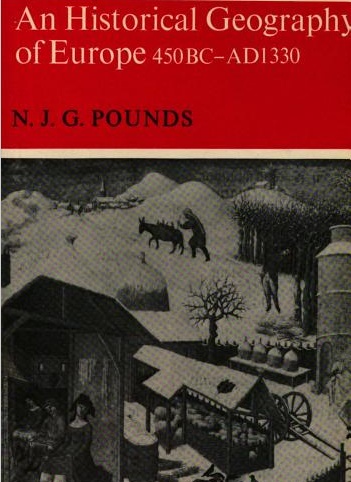
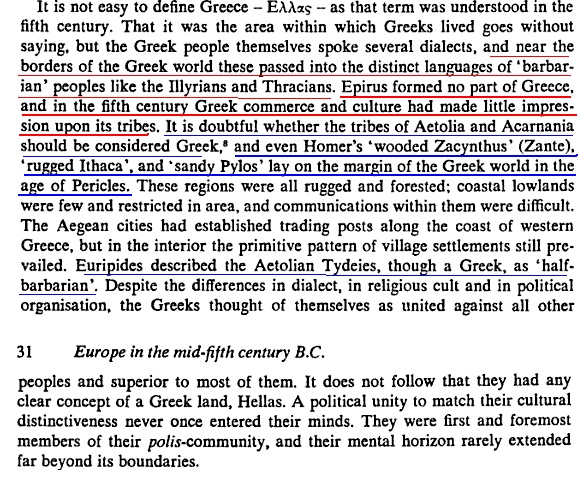
There is some other elements that needs to be pointed out. Even the biased N. G. L. Hammond (who consider Epirotes as Greeks) has noticed that:
The Greek colonies (mainly of Corinthian stock) were established in the southernmost corners of Epirus, while the rest of colonies were later scattered into other coastal parts thus leaving out the interior, which remain untouched from the Hellenic influences.

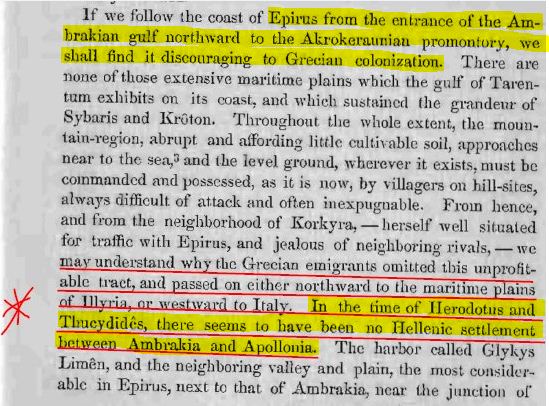
So if the Epirus have been Greek from the times immemorial, then why would Greeks found colonies into their country?

Hellas: the Ancient Greek World circa 550 BC.
Credit: Willliam R. Shepherd, 1926 Historical Atlas (now public domain). Download site Perry-Casta~neda Library Map Collection. An excellent site for public domain maps.
The above comment is worthless, but anyway it offers a good opportunity to show publicly the ignorance of Greek nationalists. First and foremost, we do not know the language of Epirotes. All what we have is a handful of words, glosses and toponymes which are thought to be Epirotic. Some of them are matched with Illyrian cognates (mostly toponymes), while others show some regional peculiarities. One thing is for sure: ancients considered the language of Epirotes as completely unintelligible. Let us serve with a passage from Plutarch:
The above mentioned words are still to be etymologically examined, but their Doric resemblance should not be considered as a proof of Greek language of Epirotes. The Doric contained a lot of Illyrian words, since they lived for centuries in neighborhood and the mutual borrowings are expected:
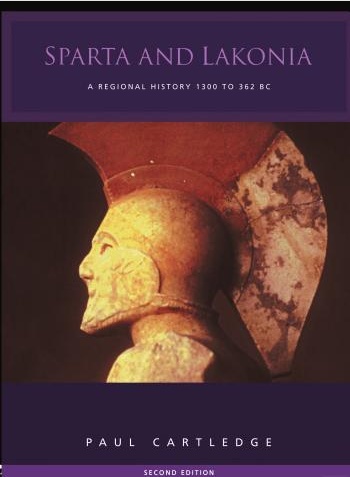
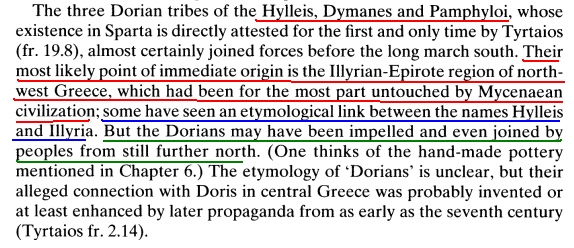
The mythological stories that invoked Greek origin of certain Epirotic chieftains have no weight at all. As we are going to show in the following extracts, the mythological genealogies with a "Greek" hero were ascribed to all Mediterranean non-Greek peoples.

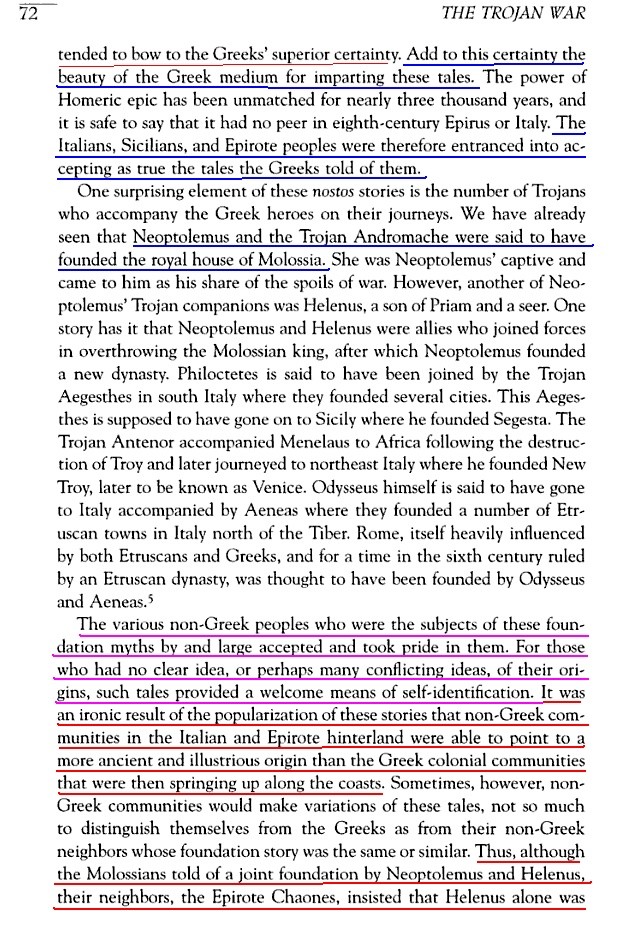
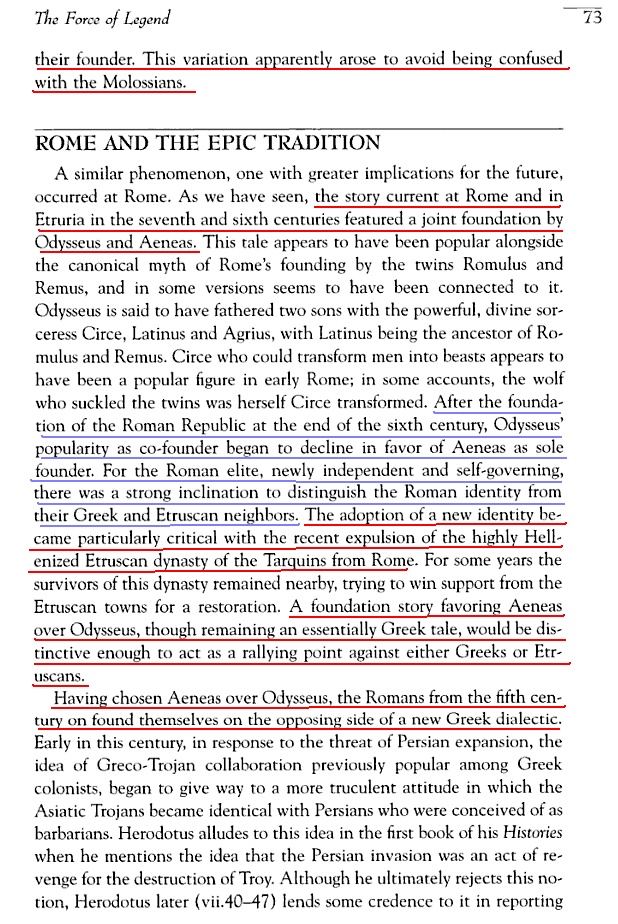


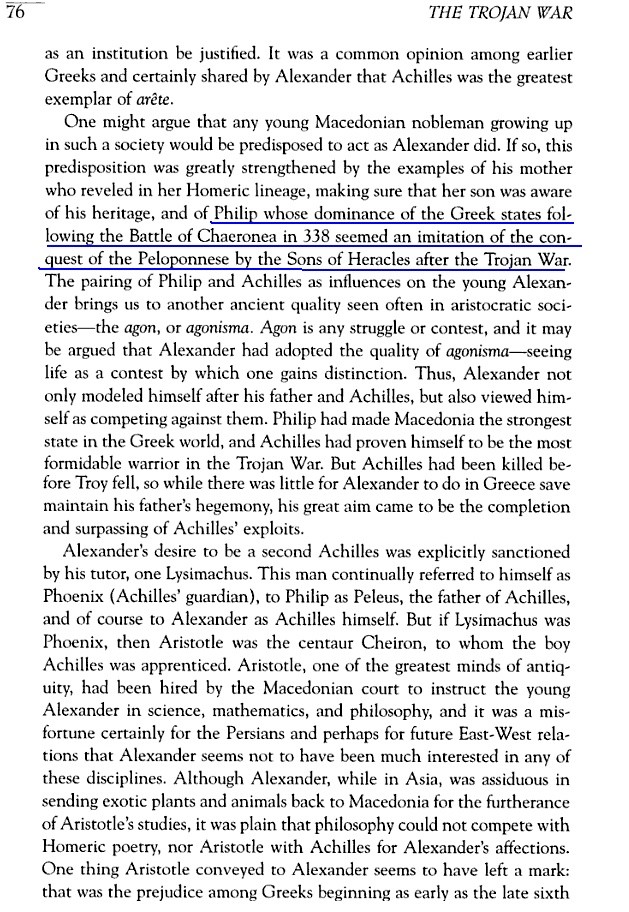
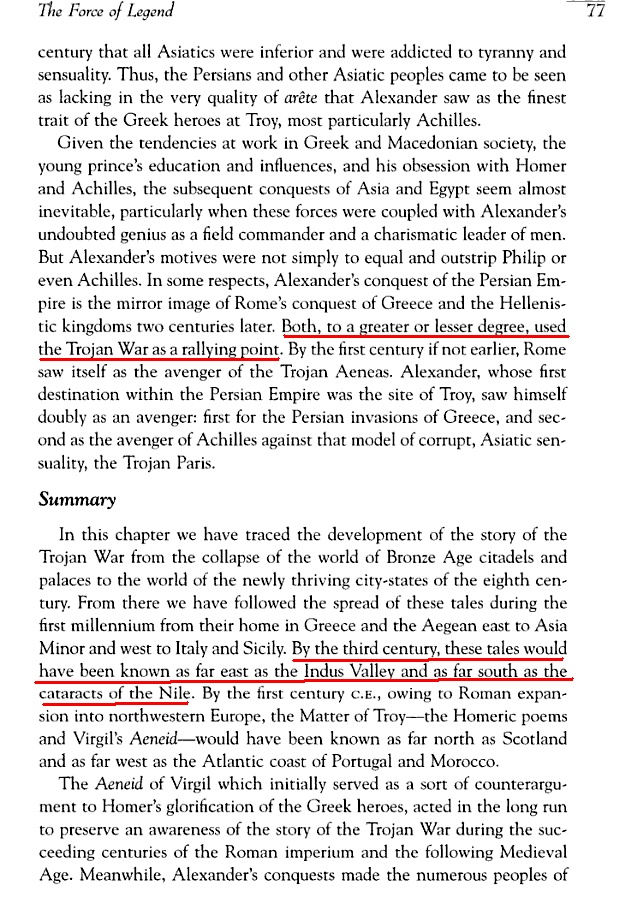
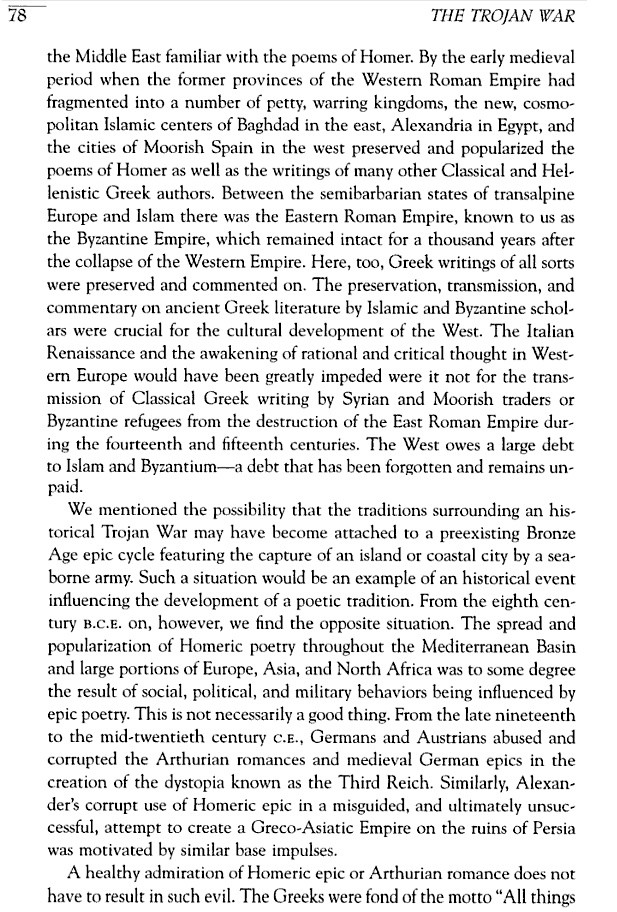

The Trojan War, Carol G. Thomas, Craig Conant - 2005
To be continued
Introduction
Unlike Macedonia, Epirus has not attracted much of scholarly attention. The XIX-th and XX-century scholars unanimously recognized Epirus as non-Greek, while its population as being similar with that of Illyria. The prevalent opinion among ancients is that Epirus wasn't part of Greece, while its population is barely considered as Greek. In 1844 when the expansionist project called 'Megali Idea' was launched for the first time, Greek nationalists upheld weird claims about the supposed Greekness of Epirus. Thus, Epirus was thought by them as a Greek land, whereas its people as genuine Greeks, something that was never suggested by ancient testimonies. A number of nationalist Greek pages are ranting for a Greek identity of Epirotes. Here we are going to list some of their falsified stories. For the sake of simplicity, we have chosen an example of brainwashed propagandists that cherish all the virtues of a manipulator. His nickname is 'Agamoi Thytai' (a.k.a Kapetan Doukas in "MOTW").
His fragile claim:
It is true that some ancient authors questioned the Greekness of Epirotes,due to their primitive and backward way of life,and this was mainly a result of the Athenian arrogance for their sophisticated way of life and advanced culture (though Strabo himself was not Athenian).This happened with with other known Greek tribes too whose Greekness is beyond doubt,it was not only the Epirotes that were labeled as "barbarians" by the Athenian superiority complex.
The territory of Epirus was the mountainous coastal region of modern north-western Greece and southern Albania. To the north was Illyria and to the east Macedonia. To the Greeks the Epirotes were barbarians, although their ancestry was Dorian. Epirus was a poor land, rich only in warriors. The dominant tribe of Epirus were the Molossians.
His Family
The only Epirotes whom the Greeks regarded as Greek were the Aeacidae, royal house of the Molossians. Pyrrhus was a member of this family. The Aeacidae claimed descent from Achilles. Olympias, wife of Philip II of Macedon and mother of Alexander the Great, was an Aeacidae princess; making Pyrrhus a cousin of Alexander. In 334BC, when Alexander the Great began his conquest of the Persian Empire, the King of Epirus, Alexander the Molossian (uncle of Pyrrhus), attempted to conquer southern Italy. In 331BC he died in battle against the Romans. He was succeeded by Aeacides, father of Pyrrhus, but in 317BC Aeacides was driven from Epirus by a rebellion2. After this Epirus became a tribal federation instead of a kingdom.
http://www.bbc.co.uk/dna/h2g2/A3533726
His Family
The only Epirotes whom the Greeks regarded as Greek were the Aeacidae, royal house of the Molossians. Pyrrhus was a member of this family. The Aeacidae claimed descent from Achilles. Olympias, wife of Philip II of Macedon and mother of Alexander the Great, was an Aeacidae princess; making Pyrrhus a cousin of Alexander. In 334BC, when Alexander the Great began his conquest of the Persian Empire, the King of Epirus, Alexander the Molossian (uncle of Pyrrhus), attempted to conquer southern Italy. In 331BC he died in battle against the Romans. He was succeeded by Aeacides, father of Pyrrhus, but in 317BC Aeacides was driven from Epirus by a rebellion2. After this Epirus became a tribal federation instead of a kingdom.
http://www.bbc.co.uk/dna/h2g2/A3533726
Strabo, Geography, 7. 7. 1
Moreover, the barbarian origin of some is indicated by their names—Cecrops, Godrus, Aïclus, Cothus, Drymas, and Crinacus. And even to the present day the Thracians, Illyrians, and Epeirotes live on the flanks of the Greeks (though this was still more the case formerly than now); indeed most of the country that at the present time is indisputably Greece is held by the barbarians—Macedonia and certain parts of Thessaly by the Thracians, and the parts above Acarnania and Aetolia by the Thesproti, the Cassopaei, the Amphilochi, the Molossi, and the Athamanes—Epeirotic tribes.
καὶ ἀπὸ τῶν ὀνομάτων δὲ ἐνίων τὸ βάρβαρον ἐμφαίνεται, Κέκροψ καὶ Κόδρος καὶ Ἄικλος καὶ Κόθος καὶ Δρύμας καὶ Κρίνακος. οἱ δὲ Θρᾷκες καὶ Ἰλλυριοὶ καὶ Ἠπειρῶται καὶ μέχρι νῦν ἐν πλευραῖς εἰσιν· ἔτι μέντοι μᾶλλον πρότερον ἢ νῦν, ὅπου γε καὶ τῆς ἐν τῷ παρόντι Ἑλλάδος ἀναντιλέκτως οὔσης τὴν πολλὴν οἱ βάρβαροι ἔχουσι, Μακεδονίαν μὲν Θρᾷκες καί τινα μέρη τῆς Θετταλίας, Ἀκαρνανίας δὲ καὶ Αἰτωλίας τὰ ἄνω Θεσπρωτοὶ καὶ Κασσωπαῖοι καὶ Ἀμφίλοχοι καὶ Μολοττοὶ καὶ Ἀθαμᾶνες, Ἠπειρωτικὰ ἔθνη.
Robert Browning's Medieval and Modern Greek, 1983, p. 2, n. 7 "The language of the Epirotes is repeatedly described in antiquity as non-Greek (Thucydides 1.47, 1.51, 2.80, Strabo, 8.1.3). Yes the Epirotes were connected with the origin of various Greek communities. There may well have been an ethnic and linguistic mixture in Epirus, some tribes speaking Greek, others Illyrian or some other language (cf. Hammond (1967) 423; Katičić (1976) 120-7)"
Graham Shipley's The Greek World after Alexander, 2000, p. 111 "The Arrian passage reminds us of an important fact of Macedonia's location: its neighbours - Thracians, Paionians, Epirotes and Illyrians - were primarily non-urban peoples with more or less hellenized elites."
Michael Grant, Rachel Kitzinger, Civilization of the ancient Mediterranean: Greece and Rome: Volume 1, 1988, p. 203:
"On the other hand, Thucydides (1.47.3, 5o-3) and Strabo (7.7.1) call the Epirotes barbaroi: only two of Thucydides' (2.80) northern chieftains have Greek names and many Epirote tribes did not speak Greek (Strabo 7.7.1) and even enjoyed...
Ronald Edward Latham, In quest of civilization, Jarrolds limited, 1946, p. 247, chapter "Trying to be Greeks":
On the fringe of Hellas, and not yet fully accepted as Greeks even in name, lived the Epirotes and the Macedonians. Though these were being progressively Hellenized by contact with Greek colonies on the coast and their rulers claimed descent from legendary Greek heroes, the Greeks still regarded them, as the more civilized Chinese regarded the Ch'in,
On the fringe of Hellas, and not yet fully accepted as Greeks even in name, lived the Epirotes and the Macedonians. Though these were being progressively Hellenized by contact with Greek colonies on the coast and their rulers claimed descent from legendary Greek heroes, the Greeks still regarded them, as the more civilized Chinese regarded the Ch'in,
From a classical Greek point of view, the northwest of Greece was inhabited by a bunch of barbarian tribes, in which the fifth-century sources are nor really interested. They contradict each other about which nations could be classified as western Greeks, Epirotes, or Illyrians. It does not really help us that the tribes did not leave behind written texts. Several sanctuaries, like Dodona, appear to have been hellenized quite early, but the people of the northwest retained some archaic traits. Several tribes were led by kings, something that was very unusual in the Greek world. On the other hand, the nearby Macedonians shared some of these characteristics.
http://www.livius.org/ps-pz/pyrrhus/pyrrhus01.html
http://www.livius.org/ps-pz/pyrrhus/pyrrhus01.html
'In October 1984, 70 historians and archaeologists from Greece, Albania, Romania, Italy and several other countries of Europe convened in Clermont-Ferrand, France. They held a colloquium with a group of Specialists in ancient history who were working there under the direction of Proffesor Pierre Kaban, the renowned expert on Epirus. They compared studies on the tribal and ethnic groups which gradually organised into urban life, then federated into state organisations. They compared juridical institutions such as family right of ownership, the role of the woman in the family and the procedure in freeing slaves. Similarities of Epirotes centers like Dodona and those of Southern Illyria were evidenced by the layout, architecture, and political organisation, also the circulation of coins, the structure of groves, the burial rites and articles found in the tumuli. But scholars concluded that from early antiquity until the Roman times THAT CULTURE OF SOUTHERN ILLYRIA AND EPIRUS, INCLUDING MOLOSSIA, WAS QUITE DIFFERENT FROM THAT OF CLASSICAL GREECE AS FOUND IN ATHENS AND SPARTA' (Jaques 1995:80/81)
Bibliography:
Edwin.E.Jaques 1995 'The Albanians: An ethnic history from prehistoric times to the present'
Bibliography:
Edwin.E.Jaques 1995 'The Albanians: An ethnic history from prehistoric times to the present'
"In later times more than half of Aetolia ceased to be Grecian, and without doubt adopted the manners and language of the Illyrians, from which point the Athamanes, an Epirote and Illyrian nation, pressed into the south of Thessaly. "
The Historians' History of the World: Greece to the Peloponnesian war
Henry Smith Williams - 1904 - p. 111
The Historians' History of the World: Greece to the Peloponnesian war
Henry Smith Williams - 1904 - p. 111
«τὸ γὰρ ἔθνος μέγα μὲν εἶναι τὸ τῶν Αἰτωλῶν καὶ μάχιμον, οἰκοῦν δὲ κατὰ κώμας ἀτειχίστους, καὶ ταύτας διὰ πολλοῦ, καὶ σκευῇ ψιλῇ χρώμενον οὐ χαλεπὸν ἀπέφαινον, πρὶν ξυμβοηθῆσαι, καταστραφῆναι. ἐπιχειρεῖν δ᾿ ἐκέλευον πρῶτον μὲν Ἀποδωτοῖς, ἔπειτα δὲ Ὀφιονεῦσι καὶ μετὰ τούτους Εὐρυτᾶσιν, ὅπερ μέγιστον μέρος ἐστὶ τῶν Αἰτωλῶν, ἀγνωστότατοι δὲ γλῶσσαν καὶ ὠμοφάγοι εἰσίν, ὡς λέγονται» (ΘΟΥΚΥΔΙΔΗΣ III.94)
III,94: The Aetolian nation, although numerous and warlike, yet dwelt in un-walled villages scattered far apart, and had nothing but light armor, and might, according to the Messenians, be subdued without much difficulty before succors could arrive. The plan which they recommended was to attack first the Apodotians, next the Ophionians, and after these the Eurytanians, who are the largest tribe in Aetolia, and speak, as is said, a language exceedingly difficult to understand, and eat their flesh raw.
III,94: The Aetolian nation, although numerous and warlike, yet dwelt in un-walled villages scattered far apart, and had nothing but light armor, and might, according to the Messenians, be subdued without much difficulty before succors could arrive. The plan which they recommended was to attack first the Apodotians, next the Ophionians, and after these the Eurytanians, who are the largest tribe in Aetolia, and speak, as is said, a language exceedingly difficult to understand, and eat their flesh raw.
Aetolia (in the Roman sense of the name) had not been greatly affected by Hellenic civilization when the Romans conquered it. Five Aetolian cities, evidently Hellenic and distinguished, figure in Homer. But Thucydides and the Greeks of the classical age regarded the Aetolians as barbaric. […] They extended their rule over tribes to the north whom the Greeks of the great age looked upon as savages. In the pages of Livy, Philip V of Macedon is made to admit the Hellenic character of some Aetolians, but to deny that the greater part of those who bore the name were Greeks. The Aetolians were natural enemies of the more civilized Greek peoples…
The Municipalities of the Roman Empire, p. 412
The Municipalities of the Roman Empire, p. 412
This pretentious harangue called up Aristaenus, the captain-general of the Achaean League. "I pray," he began, "that Jupiter Optimus Maximus and Queen Juno, the tutelary deities of Argos, may never allow that city to be a bone of contention between the tyrant of Lacedaemon and the robbers of Aetolia, or suffer more after you have recovered it than it did when he captured it. No intervening sea protects us from these brigands. What, then, will be our fate, T. Quinctius, if they make a stronghold for themselves in the very heart of Greece? They have nothing Greek about them but the language, any more than they have anything human about them but the form and appearance of men; their customs and rites are more horrid than those of any barbarians, nay, even than those of savage beasts. We ask you therefore, Romans, to rescue Argos from Nabis and settle the affairs of Greece in such a way that you may leave this country at peace and security even against the robber practices of the Aetolians." (44, 24)

During the entire historical period Epirus was more Illyrian than Greek.
Library of Universal History: Ancient history, Israel Smith Clare, 1906, p. 706
Library of Universal History: Ancient history, Israel Smith Clare, 1906, p. 706
"My own view — for what it is worth — is that of the three big Epirot tribes the Chaones were definitely non-Greek (their name appears again in the form Chones among the Iapygians of Apulia who appear to have been allied to the Illyrians "
Epirus; a study in Greek constitutional development, Baron Geoffrey Neale Cross Cross of Chelsea - 1932, p. 2
Epirus; a study in Greek constitutional development, Baron Geoffrey Neale Cross Cross of Chelsea - 1932, p. 2


There is some other elements that needs to be pointed out. Even the biased N. G. L. Hammond (who consider Epirotes as Greeks) has noticed that:
Known in the ‘Iliad’ only for the oracle of Dodona, and to Herodotus for the oracle of the dead at Ephyra, Epirus received Hellenic influence from the Elean colonies in Cassopaea and the Corinthian colonies at Ambracia and Corcyra, and the oracle of Dodona drew pilgrims from northern and central Greece especially.
Oxford Classical Dictionary about Epirus
Oxford Classical Dictionary about Epirus
Academic American encyclopedia, Volume 7, Grolier, 1997:
Epirus was an ancient region of Greece, located in what is now Albania and northwestern Greece, with Illyria to the north, the Pindus mountains to the east, and the Gulf of Ambracia (near Preveza) to the south. The region was barbarous in early Greek times and famous primarily for the oracle at Dodona (in southern Epirus) with its sacred oak tree and cult of Zeus. The oracle was much consulted throughout ancient times. The region became Hellenized through contact with Corcyra (Korfu) and Ambracia, but it did not become important until Alexander, king of Molossia (in Epirus) and brother-in-law of Philip II of Macedonia, unified the Epirotes. Alexander invaded Italy in 333 B.C. He conquered much of southern Italy, but was finally defeated and killed in 330. When Pyrrhus (319–272) ascended the throne, Epirus was dependent on Macedonia. He made his country independent and increased its territory at Macedonia's expense. He too invaded Italy brilliantly but unsuccessfully. His failure weakened the kingdom, which fell c.232. Epirus was subsequently drawn into the Roman-Macedonian wars, and in 167 the Romans sacked the country and enslaved 150,000 Epirotes. For centuries thereafter, Epirus remained under Roman (and later Byzantine) rule. In 1081 it was conquered by the Norman crusader Robert Guiscard. When the Fourth Crusade captured Constantinople, the Byzantines established (1204) an independent despotate of Epirus. It survived as a vassal state of the Byzantine Empire until conquered by the Ottoman Turks in the 15th century.
Charles W. Fornara
Epirus was an ancient region of Greece, located in what is now Albania and northwestern Greece, with Illyria to the north, the Pindus mountains to the east, and the Gulf of Ambracia (near Preveza) to the south. The region was barbarous in early Greek times and famous primarily for the oracle at Dodona (in southern Epirus) with its sacred oak tree and cult of Zeus. The oracle was much consulted throughout ancient times. The region became Hellenized through contact with Corcyra (Korfu) and Ambracia, but it did not become important until Alexander, king of Molossia (in Epirus) and brother-in-law of Philip II of Macedonia, unified the Epirotes. Alexander invaded Italy in 333 B.C. He conquered much of southern Italy, but was finally defeated and killed in 330. When Pyrrhus (319–272) ascended the throne, Epirus was dependent on Macedonia. He made his country independent and increased its territory at Macedonia's expense. He too invaded Italy brilliantly but unsuccessfully. His failure weakened the kingdom, which fell c.232. Epirus was subsequently drawn into the Roman-Macedonian wars, and in 167 the Romans sacked the country and enslaved 150,000 Epirotes. For centuries thereafter, Epirus remained under Roman (and later Byzantine) rule. In 1081 it was conquered by the Norman crusader Robert Guiscard. When the Fourth Crusade captured Constantinople, the Byzantines established (1204) an independent despotate of Epirus. It survived as a vassal state of the Byzantine Empire until conquered by the Ottoman Turks in the 15th century.
Charles W. Fornara


So if the Epirus have been Greek from the times immemorial, then why would Greeks found colonies into their country?

Hellas: the Ancient Greek World circa 550 BC.
Credit: Willliam R. Shepherd, 1926 Historical Atlas (now public domain). Download site Perry-Casta~neda Library Map Collection. An excellent site for public domain maps.
Originally posted by Agamoi Thytai
How come Epirotes were not Greek when their language was full of archaic Greek words???According to Plutarch,Epirotes called Achilles "aspetos" in their local dialect,which is an archaic Greek word used mainly in Homeric poems:
How come Epirotes were not Greek when their language was full of archaic Greek words???According to Plutarch,Epirotes called Achilles "aspetos" in their local dialect,which is an archaic Greek word used mainly in Homeric poems:
Θεσπρωτῶν καὶ Μολοσσῶν μετὰ τὸν κατακλυσμὸν ἱστοροῦσι Φαέθοντα βασιλεῦσαι πρῶτον, ἕνα τῶν μετὰ Πελασγοῦ παραγενομένων εἰς τὴν Ἤπειρον ἔνιοι δὲ Δευκαλίωνα καὶ Πύρραν εἱσαμένους τὸ περὶ Δωδώνην ἱερὸν αὐτόθι κατοικεῖν ἐν Μολοσσοῖς.
χρόνῳ δὲ ὕστερον Νεοπτόλεμος ὁ Ἀχιλλέως λαὸν ἀγαγὼν αὐτός τε τὴν χώραν κατέσχε καὶ διαδοχὴν βασιλέων ἀφ᾽ αὑτοῦ κατέλιπε, Πυρρίδας ἐπικαλουμένους: καὶ γὰρ αὐτῷ Πύρρος ἦν παιδικὸν ἐπωνύμιον. καὶ τῶν γνησίων παίδων ἐκ Λανάσσης τῆς Κλεοδαίου τοῦ Ὕλλου γενομένων ἕνα Πύρρον ὠνόμασεν. ἐκ τούτου δὲ καὶ Ἀχιλλεὺς ἐν Ἠπείρῳ τιμὰς ἰσοθέους ἔσχεν, Ἄσπετος ἐπιχωρίῳ φωνῇ προσαγορευόμενος.
Of the Thesprotians and Molossians after the great inundation, the first king, according to some historians, was Phaethon, one of those who came into Epirus with Pelasgus. Others tell us that Deucalion and Pyrrha, having set up the worship of Jupiter at Dodona, settled there among the Molossians. In after time, Neoptolemus, Achilles's son, planting a colony, possessed these parts himself, and left a succession of kings, who, after him, was named Pyrrhidae, as he in his youth was called Pyrrhus, and of his legitimate children, one was born of Lanassa, daughter of Cleodaeus, Hyllus's son, had also that name. From him Achilles came to have divine honours in Epirus, under the name of Aspetus, in the language of the country.
χρόνῳ δὲ ὕστερον Νεοπτόλεμος ὁ Ἀχιλλέως λαὸν ἀγαγὼν αὐτός τε τὴν χώραν κατέσχε καὶ διαδοχὴν βασιλέων ἀφ᾽ αὑτοῦ κατέλιπε, Πυρρίδας ἐπικαλουμένους: καὶ γὰρ αὐτῷ Πύρρος ἦν παιδικὸν ἐπωνύμιον. καὶ τῶν γνησίων παίδων ἐκ Λανάσσης τῆς Κλεοδαίου τοῦ Ὕλλου γενομένων ἕνα Πύρρον ὠνόμασεν. ἐκ τούτου δὲ καὶ Ἀχιλλεὺς ἐν Ἠπείρῳ τιμὰς ἰσοθέους ἔσχεν, Ἄσπετος ἐπιχωρίῳ φωνῇ προσαγορευόμενος.
Of the Thesprotians and Molossians after the great inundation, the first king, according to some historians, was Phaethon, one of those who came into Epirus with Pelasgus. Others tell us that Deucalion and Pyrrha, having set up the worship of Jupiter at Dodona, settled there among the Molossians. In after time, Neoptolemus, Achilles's son, planting a colony, possessed these parts himself, and left a succession of kings, who, after him, was named Pyrrhidae, as he in his youth was called Pyrrhus, and of his legitimate children, one was born of Lanassa, daughter of Cleodaeus, Hyllus's son, had also that name. From him Achilles came to have divine honours in Epirus, under the name of Aspetus, in the language of the country.
Strabo, Book VII, 2: Among the Thesprotians and the Molossians old women are called "peliai" and old men "pelioi," as is also the case among the Macedonians; at any rate, those people call their dignitaries "peligones" (compare the "gerontes"476 among the Laconians and the Massaliotes).477 And this, it is said, is the origin of the myth about the pigeons in the Dodonaean oak-tree.
http://penelope.uchicago.edu/Thayer/...ragments*.html
http://penelope.uchicago.edu/Thayer/...ragments*.html
Originally posted by Agamoi Thytai
These words are not only Greek,they are Doric Greek according to Hesychius' lexicon,something that excludes the possibility they were loanwords from Attic or Koine Greek and furthermore prove the Doric origin of these tribes:
These words are not only Greek,they are Doric Greek according to Hesychius' lexicon,something that excludes the possibility they were loanwords from Attic or Koine Greek and furthermore prove the Doric origin of these tribes:


The mythological stories that invoked Greek origin of certain Epirotic chieftains have no weight at all. As we are going to show in the following extracts, the mythological genealogies with a "Greek" hero were ascribed to all Mediterranean non-Greek peoples.









The Trojan War, Carol G. Thomas, Craig Conant - 2005
To be continued

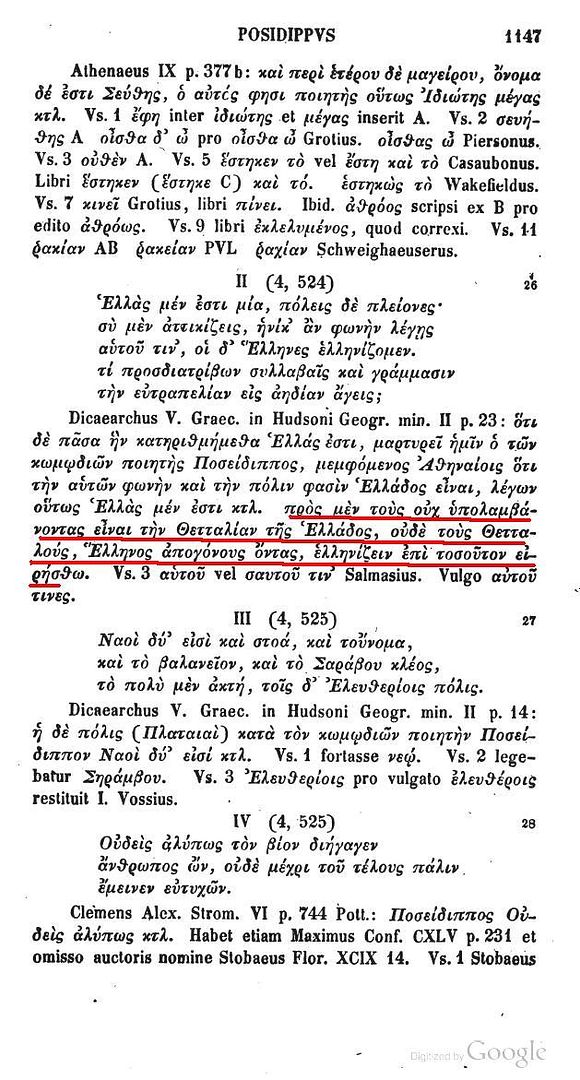

 ) they got their independence. Because as General Demetrios Kallergis said:
) they got their independence. Because as General Demetrios Kallergis said: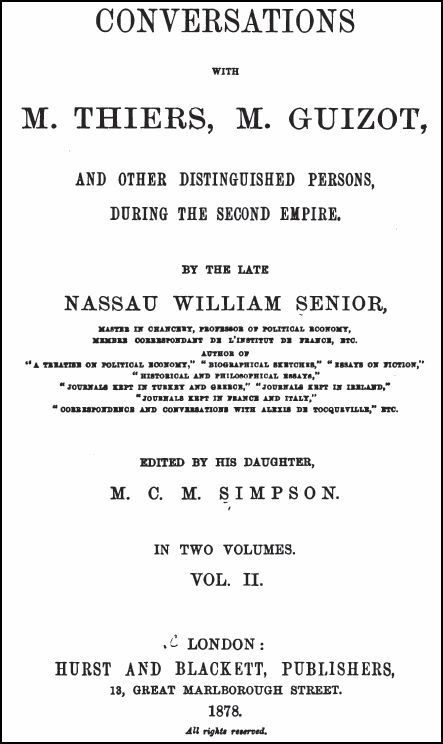
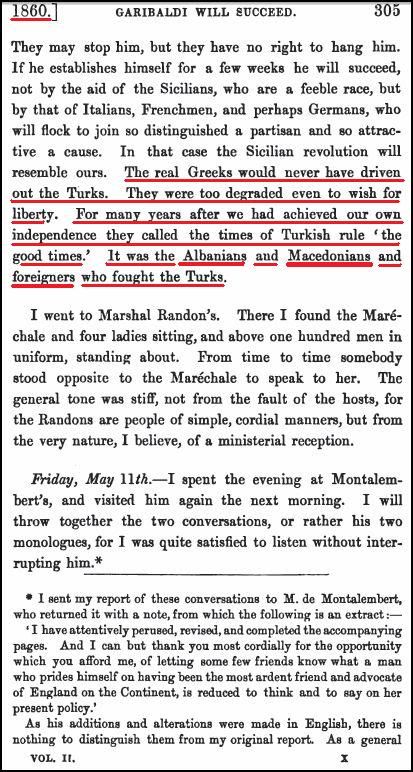
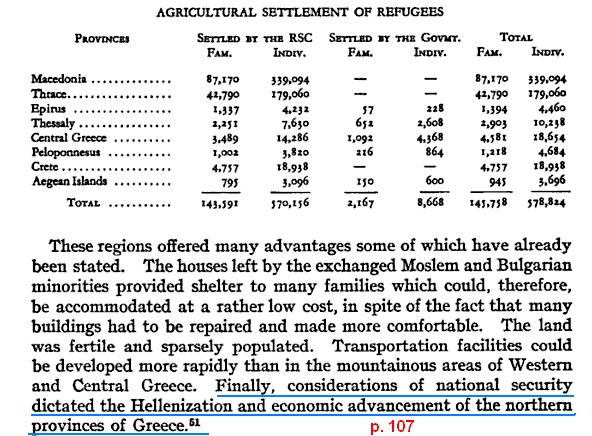
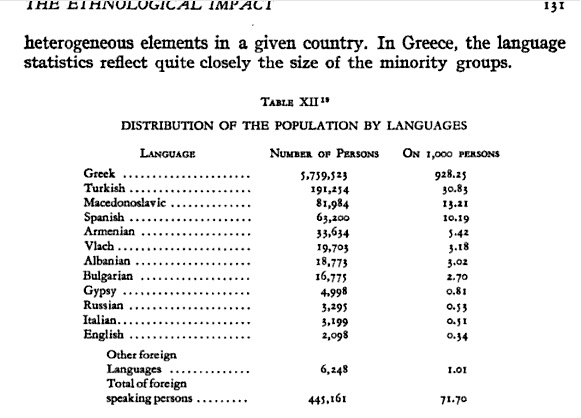
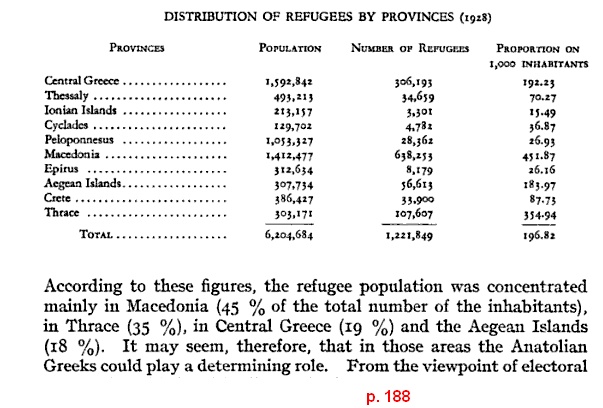
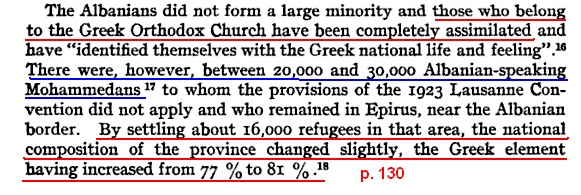
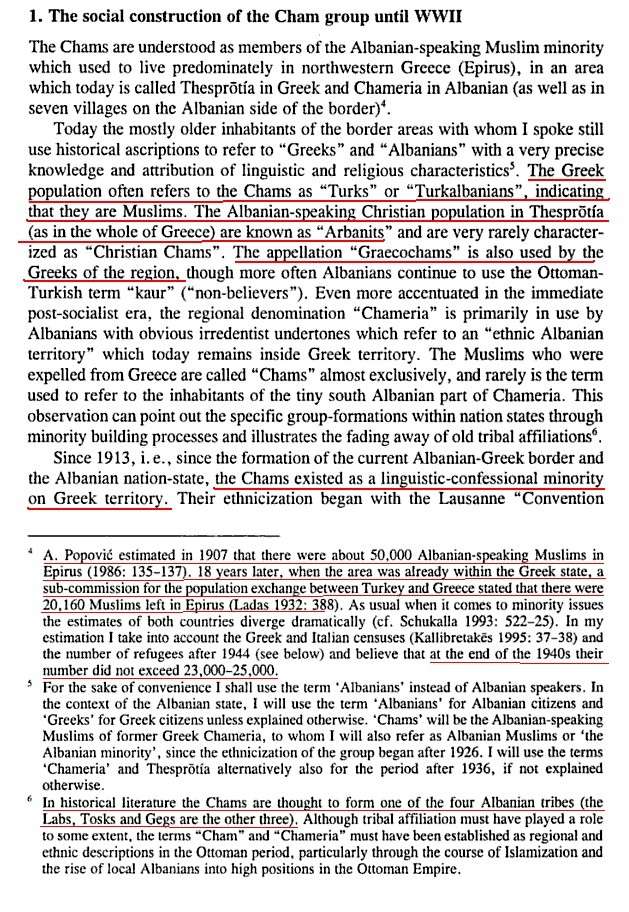
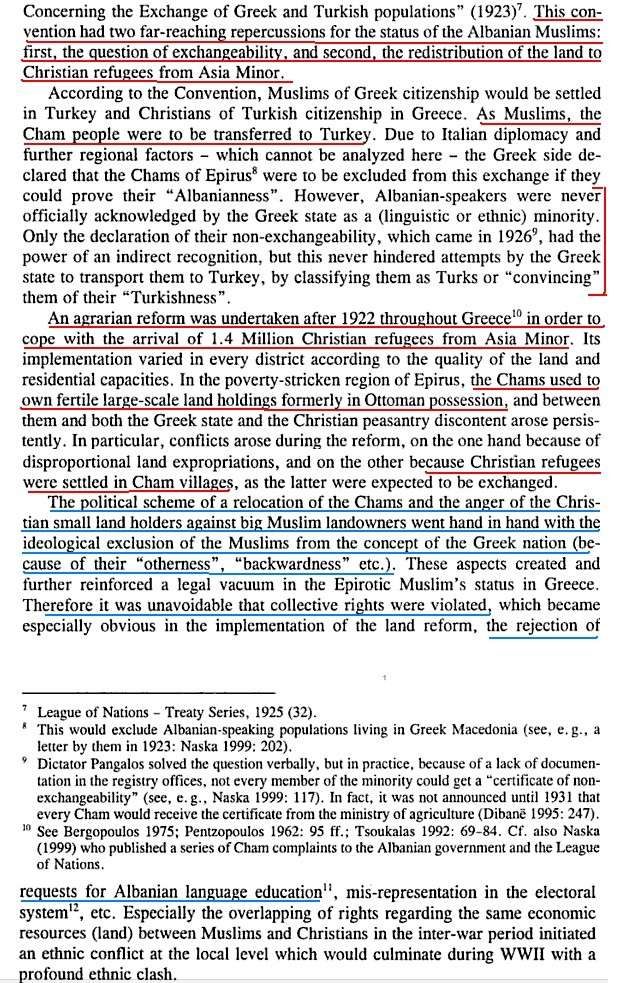
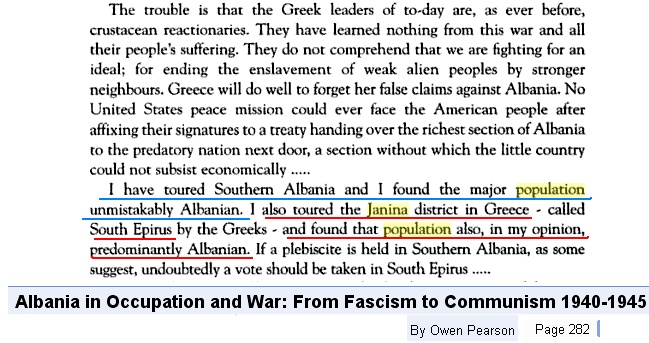

Comment